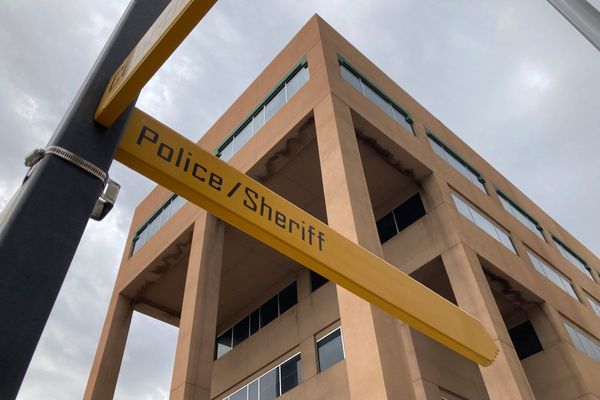
Universities will be plunged into greater financial distress and Britain’s economic recovery dented should ministers proceed with a new “self-defeating” clampdown on international student visas, senior Tories are warning.
Vice-chancellors believe a renewed attempt to reduce visa numbers is just weeks away after ministers ordered their immigration advisers to make an emergency assessment of how a visa designed to attract students to the UK was operating. The report is expected to land on the desk of home secretary James Cleverly next week.
However, influential figures in the Conservative party are sounding the alarm over any further attempt to restrict such visas, with higher education institutions relying on overseas income and several already having to make severe financial cutbacks.
The migration advisory committee (MAC), which advises Cleverly on immigration measures, was ordered to carry out a rapid review of so-called “graduate route” visas in March. It allows international students to stay for two or three years after graduation. Minister initially said it was designed to “attract and retain bright international students”. Cleverly asked the review to look at whether some of the demand for study visas is being “driven more by a desire for immigration rather than education”.
A growing backlash is under way, however, amid concerns that new reforms will heap more pressure on a sector already teetering. “Slashing the graduate route would set back important government policy priorities: Global Britain, levelling up, exports, science superpower,” said Tory peer Jo Johnson, the former universities minister. “It’s hard to think of a policy more self-defeating. And for what? To lower immigration stats which international students shouldn’t be part of.
“In a rational world, overseas students would be treated as temporary residents or tourists, with whom they share many characteristics.”
Nicky Morgan, the former education secretary, added: “Any visa abuse should be addressed, but international students are generally good for the UK’s knowledge economy and global reach, so this government needs to decide how to distinguish them from other types of migration.”
David Willetts, another former universities minister, added: “Overseas students bring spending power into our towns and cities and help fund our universities. They are not migrants. They return home as important friends and business partners for Britain. If we drive them away, we damage our economy and diminish Britain.”
Ministers, desperate to reduce migration numbers, are seeing the issue as a dividing line at the election. Robert Jenrick, the former immigration minister who is pushing for a harder line from Rishi Sunak, said the government should set a migration cap in the tens of thousands.
Several senior higher education figures have warned of a crisis thanks to growing costs since the pandemic and a student fees cap that has not grown significantly since 2012, when it was set at a maximum of £9,000 a year. It now stands at £9,250. International student numbers have already fallen, with many vice-chancellors blaming the tightening of immigration rules. Some have predicted that some institutions will go bust in the near future. Many universities are already undergoing waves of redundancies to cope.
The Russell Group, which represents 24 research-intensive universities, warned a cut in international students would damage the economy and undermine the UK’s reputation. “I’m proud our higher education institutions are seen as the top sector on the global stage,” said its chief executive, Dr Tim Bradshaw. “It shows people recognise the impact of our world-class research and education. That’s why we are concerned about a further curb in international students.
“If the government’s own analysis is correct, the graduate visa route will bring in nearly twice as much tax revenue as it costs the public purse.”
A government spokesperson said: “We are fully focused on striking the right balance between acting decisively to tackle net migration and attracting the brightest students to our universities, recognising the significant contribution they make to the UK. That’s why the home secretary commissioned an independent, expert review of the graduate route to prevent any abuse and ensure it continues to work in the UK’s best interests and attracts and retains the talent our economy needs.”







